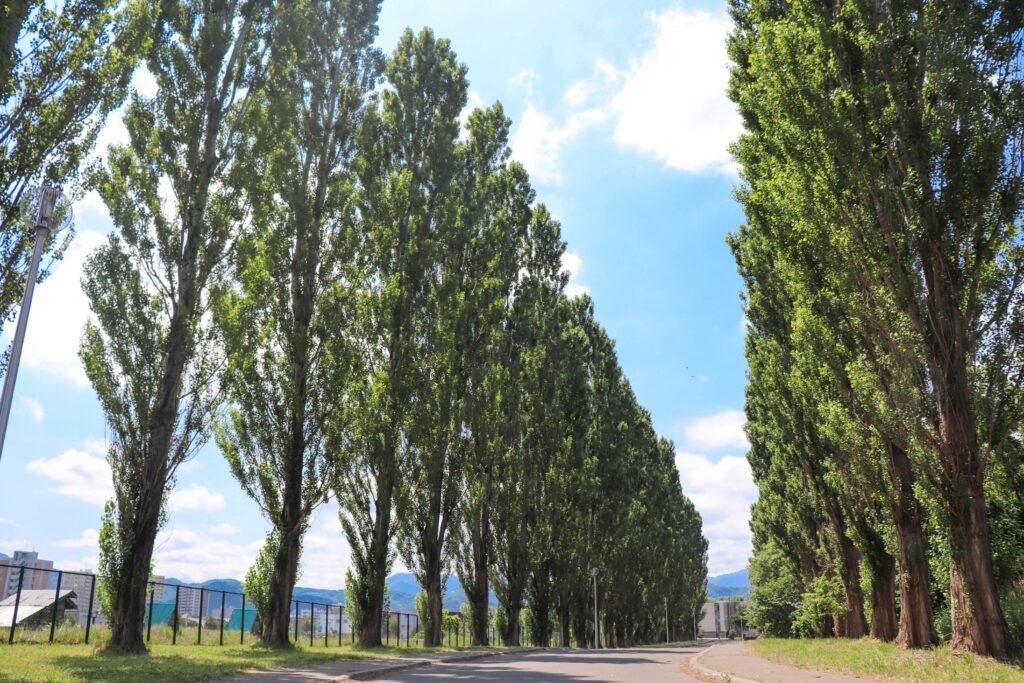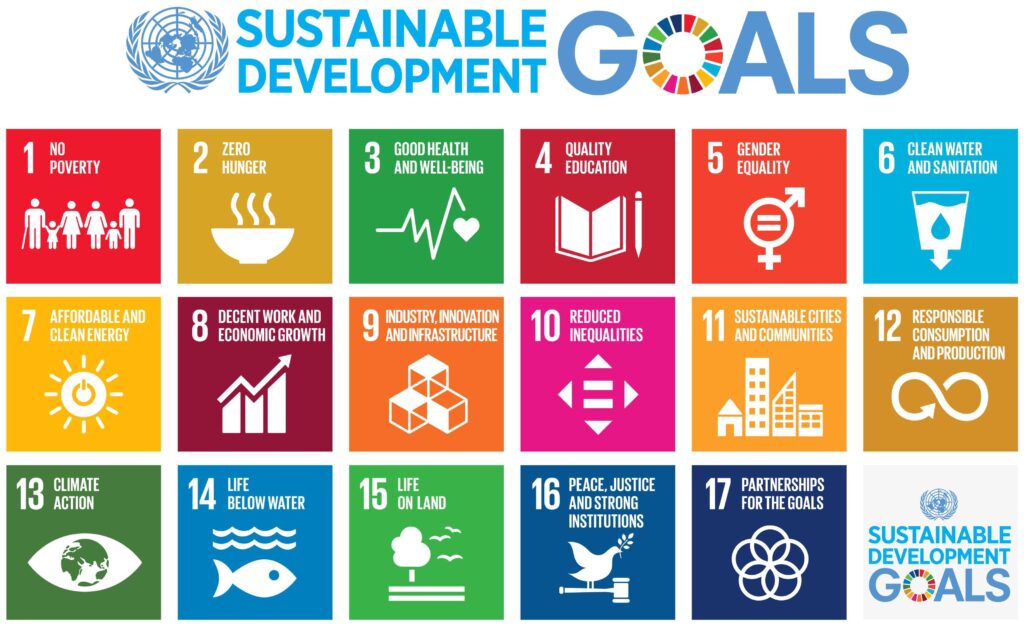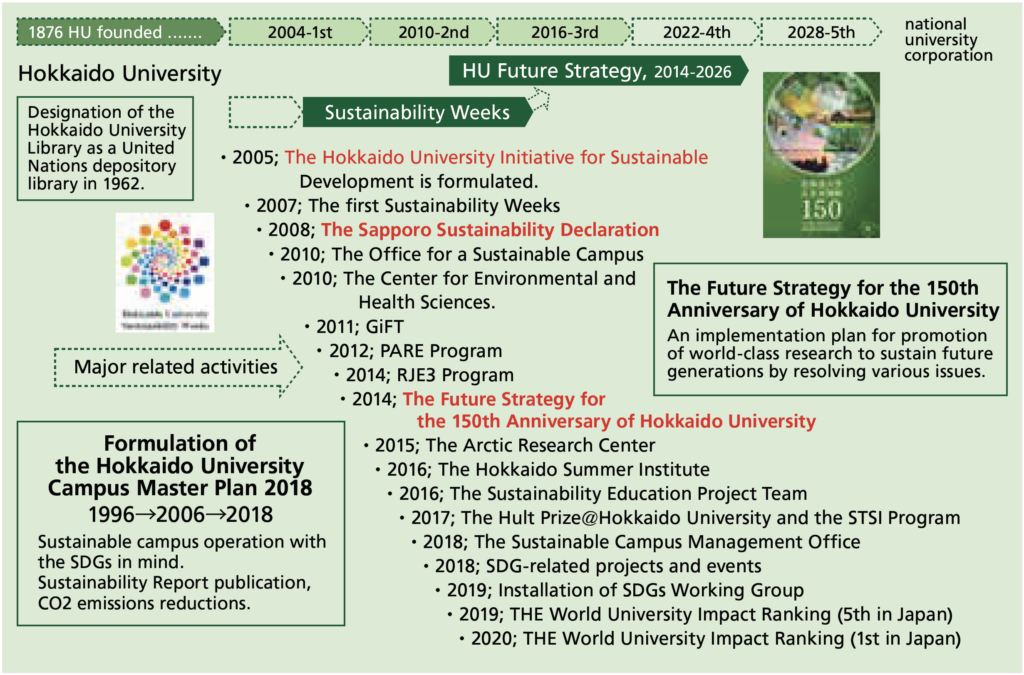The Pursuit of Sustainability, Efforts to Achieve the SDGs, and Toward a Path Beyond
Research Highlight | July 21, 2021
This article was published in the Autumn 2020 issue of Litterae Populi. The full list of articles can be found here.
Hokkaido University ranked first in Japan in the Times Higher Education (THE) University Impact Rankings1 2020, which shines a light on the commitment of universities to social contributions toward SDGs. The rankings are designed to showcase progress toward the 17 SDGs by measuring universities’ social and economic impacts.
The United Nations Sustainable Development Goals (SDGs) are a set of goals adopted by the international community at the United Nations Summit in September 2015. The SDGs aspire to ‘leave no one behind’ and require concerted efforts by the international community.
The 17 SDGs, which are accompanied by 169 targets, are integrated. Since they are inseparably linked, achieving the goals requires partnerships between different academic disciplines and society in general, and there are growing expectations for universities to play their part, too.
The history of Hokkaido University and the SDGs
HU’s initiatives toward the SDGs predate their adoption at the UN.
We at HU will celebrate our 150th anniversary in 2026. As we approach this important milestone, we have been moving forward with reforms since 2014, to become an institution that can contribute to the resolution of global issues—reforms based on the basic philosophies that have been upheld ever since HU’s founding and on its long-term objectives.
One objective of the reforms, known as the Future Strategy for the 150th Anniversary of Hokkaido University, is to sustain future generations by resolving various issues.
The appeal of HU includes vast fields, such as on the Sapporo Campus, which has 11 undergraduate schools, the Hakodate Campus, a livestock farm and other farms, a botanical garden, experimental forests—some of the largest such forests at any university in Japan—and training ships (the Oshoro-Maru and the Ushio-Maru) that belong to the School of Fisheries Sciences. Leveraging these vast, diverse fields to our advantage, HU has been engaged in research and education that are related to the SDGs.
Since establishing the Office for a Sustainable Campus (now, the Sustainable Campus Management Office) in 2010, HU has promoted sustainable campus initiatives to help create a sustainable society through its research, education, social cooperation, and campus development. Today, HU takes a leading role in such initiatives among institutions of higher education in Japan.
Hokkaido University was initially founded as Sapporo Agricultural College. Professor Takanori Nishimura, dean of the Research Faculty of Agriculture, states, “Research and education activities to create a sustainable society have been under way at the School of Agriculture for more than 140 years, since before the term ‘SDGs’ even existed.” In fact, research and education at the School, the Graduate School, and the Research Faculty of Agriculture are closely related to the SDGs. This year, to highlight their connections with the SDGs, the website of each laboratory includes icons for the SDGs that are related to their research activities. This demonstration of relations between their research fields and the SDGs expedite their networking with private businesses and other stakeholders in industry. Further, the interlinked nature of the SDGs is expected to promote interdisciplinary collaboration.
Educational initiatives
SDG-related student activities are also thriving on campus. In 2019, HU’s Aquamou, a team of four students, became the first team from Japan to win at a Hult Prize2 Regional Summit, putting them among the top 40 teams from around the world.
“We also offer a vast lineup of SDG-related courses,” remarks Professor Makoto Demura of the Faculty of Advanced Life Science. “I myself give a seminar for first-year students entitled ‘Sustainable Development Goals (SDGs) and Life Science.’ It is truly crucial to raise student awareness and contemplation of how their areas of specialization connect to society,” he adds.
Despite the great lineup of SDG-related courses, HU’s current syllabus search system does not enable students to easily find SDG-related courses. It remains a challenge to make explicit how HU courses relate to the SDGs.
Publicizing HU’s SDG initiatives far and wide
In Japan, educational reforms focusing on the SDGs are in progress. As curricula change, how incoming students can learn about the SDGs at university will become an important factor when they decide which colleges and universities to attend. “We thought HU should consider launching organized publicity campaigns,” says Professor Demura.
Despite its distinguished history and achievements of contributing to the SDGs, HU lacks an organization for widely publicizing its SDG-related courses. For this reason, an SDG Working Group led by Professor Demura was established; the group’s scrutiny of avenues to publicize HU’s SDG activities far and wide bore fruit in the form of a new SDG website3 established this year. Professor Demura stresses that the website mainly targets high school students because it is most important that youths who will lead the next generation will envision their future with the SDGs in mind.
The COVID-19 pandemic stands in the way of achieving the SDGs, but it has renewed our sense of their importance. HU is expected to make further contributions to building a prosperous future.
1 The University Impact Rankings are high-profile annual rankings published since 2019 by Times Higher Education (THE), a UK-based magazine that reports on news and issues related to higher education. In 2020, Hokkaido University placed first in Japan and 76th globally.
2 The Hult Prize, organized by the Hult Prize Foundation, is the world’s largest competition for crowdsourcing entrepreneurial ideas from students. Held since 2009, this annual competition lets students worldwide compete on ideas to address challenges that align with the SDGs. The 2019 challenge was to build the foundations of a venture that will provide meaningful work for 10,000 youths within the next decade, and the winning team received seed capital of USD 1 million (approx. JPY 110 million).
3 https://sdgs.oeic.hokudai.ac.jp
This article was published in the Autumn 2020 issue of Litterae Populi. The full list of articles can be found here.



